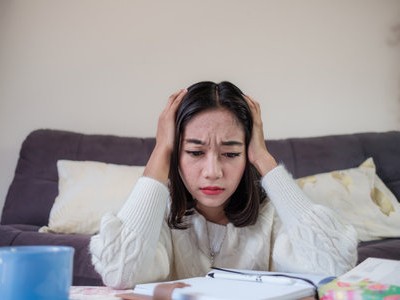
Anxiety Depression Disorder Psychologist Surfers Paradise (07) 5539 9798
Depression Psychologist Surfers Paradise

Introduction: Depression Signs Psychologist Surfers Paradise
In today's fast-paced and demanding world, it is not a surprise that lots of people struggle with stress, anxiety, and depression. These mental health conditions can have an extensive influence on a person's general well-being and lifestyle. While stress, stress and anxiety, and anxiety are often viewed as different entities, there is a strong link between them. This post will check out the connection between tension, stress and anxiety, and anxiety, shedding light on the elements that contribute to their coexistence and the possible strategies for handling these conditions effectively.
The Link In between Tension and Anxiety
Stress and anxiety often go together, as one can be a trigger for the other. When we experience tension, our bodies launch cortisol, typically called the tension hormone. This physiological reaction prepares us for the fight-or-flight action, enabling us to handle prospective threats or challenges. Nevertheless, persistent or extreme stress can result in extended activation of the stress reaction system, resulting in anxiety.
Anxiety is identified by What Are The Signs Of Anxiety Psychologist Surfers Paradise Near Me relentless feelings of concern, fear, or unease. It can manifest in different types such as generalized stress and anxiety condition (GAD), panic disorder, social anxiety condition (SAD), or specific fears. Individuals with anxiety might experience physical symptoms like increased heart rate, sweating, shivering, and problem concentrating. The presence of persistent tension can intensify these signs and contribute to the advancement or worsening of stress and anxiety disorders.
The Connection Between Anxiety and Depression
Anxiety and depression often coexist in people who experience mental Signs Of Anxiety Psychologist Surfers Paradise Near Me health challenges. In truth, research suggests that about half of those identified with anxiety likewise satisfy the criteria for a stress and anxiety condition. The relationship between these 2 conditions is intricate and multifaceted.
One possible description for this connection is that both anxiety and anxiety share typical underlying systems in the brain. Neurotransmitters like serotonin and norepinephrine play a vital role in regulating state of mind, and imbalances in these chemicals can contribute to the development of both stress and anxiety and anxiety. Additionally, people with anxiety may experience unfavorable idea patterns and rumination, which can add to the beginning or worsening of depressive symptoms.
Furthermore, the chronic nature of stress and anxiety can be mentally draining and result in feelings of hopelessness and misery, attributes commonly connected with depression. The constant worry, worry, and anticipatory anxiety that individuals with stress and anxiety experience can take a toll on their psychological health and increase their vulnerability to establishing depression.
The Impact of Tension on Depression
Stress is a substantial contributing aspect to the development and worsening of depressive signs. When we are exposed to persistent tension, our bodies produce higher levels of cortisol, which can disrupt the fragile balance of neurotransmitters involved in mood guideline. This interruption can result in a reduction in serotonin levels, frequently associated with depression.
Moreover, tension can also impact different elements of an individual's life that are necessary for preserving good psychological health. It can disrupt sleep patterns, interfere with hunger and consuming practices, strain interpersonal relationships, and prevent general self-care practices. These elements integrated can contribute to the start or worsening of depressive symptoms.
Strategies for Handling Stress, Anxiety, and Depression
While tension, stress and anxiety, and depression can be challenging to navigate, there are several techniques people can employ to manage these conditions effectively. It is important to bear in mind that what works for a single person may not work for another. Therefore, it might take some time and experimentation to discover the most suitable coping mechanisms.
Seeking Professional Help: Consulting an experienced mental health expert such as a depression psychologist in Surfers Paradise is frequently the primary step in handling tension, stress and anxiety, and anxiety. These professionals have the understanding and knowledge to supply individualized treatment strategies tailored to an individual's specific needs.
Cognitive-Behavioral Treatment (CBT) : CBT is a widely-used healing technique that focuses on determining and changing negative idea patterns and behaviors. It can assist people establish much healthier coping mechanisms, difficulty illogical beliefs, and handle stress, stress and anxiety, and depression more effectively.
Medication: In some cases, medication may be essential to manage severe signs of anxiety and depression. Antidepressants and anti-anxiety medications can assist regulate brain chemistry and alleviate symptoms. However, it is essential to work carefully with a doctor to find the ideal medication and dosage.
Lifestyle Modifications: Taking part in regular workout, practicing mindfulness or meditation techniques, keeping a healthy diet, getting enough sleep, and focusing on self-care activities can significantly impact mental health. These way of life adjustments can minimize stress levels, enhance mood, and boost total wellness.
Social Support: Structure a strong assistance network of buddies, family members, or support system can supply individuals with the emotional assistance they require when browsing stress, stress and anxiety, and depression. Having someone to confide in and lean on throughout tough times can make a substantial distinction in handling these conditions.
Stress Management Techniques: Including tension management techniques such as deep breathing exercises, progressive muscle relaxation, journaling, or engaging in hobbies that bring happiness can assist people minimize stress levels and promote relaxation.
FAQs
1. What are the main signs of anxiety?
- Symptoms of anxiety include extreme worry or fear, uneasyness or sensation on edge, irritation, trouble concentrating or sleeping, muscle tension, and physical signs like increased heart rate or shortness of breath.
2. How do I know if I have depression?
- Common symptoms of anxiety include persistent feelings of unhappiness or emptiness, loss of interest in activities when enjoyed, changes in cravings or weight, trouble sleeping or oversleeping, sensations of insignificance or regret, fatigue or loss of energy, difficulty focusing, and ideas of death or suicide.
3. What is the difference between stress and anxiety and depression?
- While anxiety is defined by excessive concern and worry, anxiety is marked by persistent feelings of unhappiness, despondence, and a loss of interest in activities. Stress and anxiety focuses more on future-oriented concerns, while depression centers around sensations of despair and emptiness.
4. Can worry cause stress and anxiety and depression?
- Yes, chronic or excessive tension can contribute to the advancement or worsening of anxiety and anxiety. Stress interrupts the delicate balance of neurotransmitters associated with state of mind policy, resulting in imbalances that can set off these conditions.
5. How can I manage stress effectively?
- Effective tension management strategies consist of exercise, mindfulness or meditation practices, maintaining a healthy diet plan, getting sufficient sleep, participating in pastimes or activities that bring joy, seeking support from loved ones, and practicing relaxation methods like deep breathing exercises or progressive muscle relaxation.
6. When must I look for expert help for tension, anxiety, or depression?
- It is recommended to look for expert assistance if stress, stress and anxiety, or depression substantially disrupt day-to-day functioning, relationships, work performance, or total lifestyle. A mental health professional can provide an accurate medical diagnosis and advise suitable treatment options.
Depression In Adults Psychologist Surfers Paradise
Conclusion
In conclusion, tension, stress and anxiety, and depression are adjoined mental health conditions that often coexist. The link in between them is intricate and influenced by various aspects such as neurochemical imbalances, negative idea patterns, and the effect of chronic stress on brain chemistry. It is essential to acknowledge the symptoms and signs of these conditions and seek appropriate aid when required. By carrying out efficient strategies for handling tension, anxiety, and anxiety and building a strong assistance network, individuals can take proactive actions towards improving their mental well-being and overall lifestyle. Keep in mind, you are not alone, and there is assistance readily available to navigate What Is Depression Psychologist Surfers Paradise Near Me these obstacles successfully.
Major Depression Symptoms Psychologist Surfers Paradise
Surfers Paradise Chiropractic Centre-Dr. Bruce Whittingham
12 Thomas Drive, Surfers Paradise QLD 4217
(07) 5539 9798
https://surfersparadisechiropractic.com.au